FabCafe Hong Kong & design community fight coronavirus with innovation
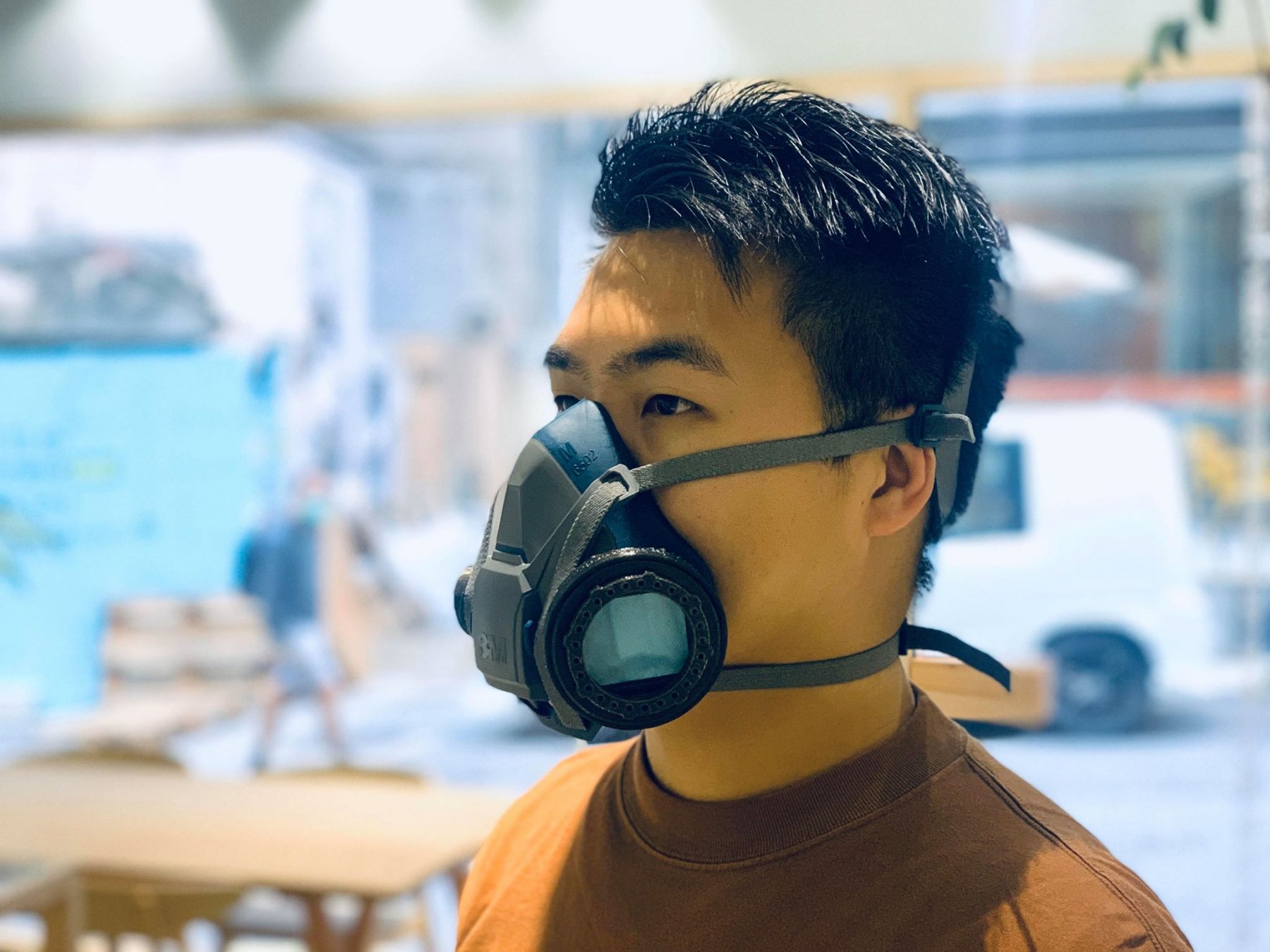
It takes a village to fight a global outbreak like coronavirus COVID-19, and Hong Kong’s design community isn’t just sitting idle.
Since January, 2020, Asia has become a battleground for the containment of the novel coronavirus disease. With its proximity to epicenter Wuhan, China, and lingering memories of the devastating impact of Severe Acute Respiratory Syndrome (SARS) in 2003, Hong Kong, in particular, is on high alert. Feeling unsafe both at home and outside, panicked citizens have taken to stockpiling face masks and other sanitation products, while the government has issued out warnings to residents regarding the potential spread of disease through bathroom pipes.
Fighting the outbreak of the disease with what they know best – innovative design – FabCafe Hong Kong has begun 3D printing mask caps and water injectors, as well as ideating with the local design community, to tackle what are now commonplace, daily challenges for Hong Kong citizens.
Respirators get a COVID-19 update, with DIY surgical mask adapters

The surge in demand for surgical face masks has resulted in mass shortages globally, and skyrocketing prices in Hong Kong. As the Bangkok Post reported in February, generic surgical masks in a set of 50 were selling for up to HK$300 (US$40), and the heavy-duty N95 masks for as much as HK$1,800 (US$230) per box.
Amidst the surgical mask panic, local designers have taken to sharing their own design solutions to the mask shortage, uploading their designs via open source – available for anyone to download. FabCafe Hong Kong has been 3D printing the works of designers like CYTWorks and OTG Onthego Limited, who have both ‘hacked’ respirators, adding a surgical mask adapter or filter for safe usage. This allows users to ration their surgical mask supply, cutting and dividing them into nine squares, to put inside the adapter and respirator.
3D printed water injectors, for preventative measures in the home
Panic over sewage systems and bathroom pipes in the densely-populated Hong Kong has its roots in the spread of disease during the SARS crisis. Infamously, the housing complex Amoy Gardens was one of the worst affected, having had the disease spread through U-shape pipes.
These so-called U-shape pipes are a common feature in many buildings in Hong Kong. Since toilet, sink and floor drain pipes are all connected to a main building pipe, through which waste from each household travels, a U-shape pipe with water in the bend would, under normal circumstances, act as a water trap and prevent sewer gases and fecal matter from entering the home. The U-shape pipes at Amoy Gardens had been empty of water, as CNN reported.
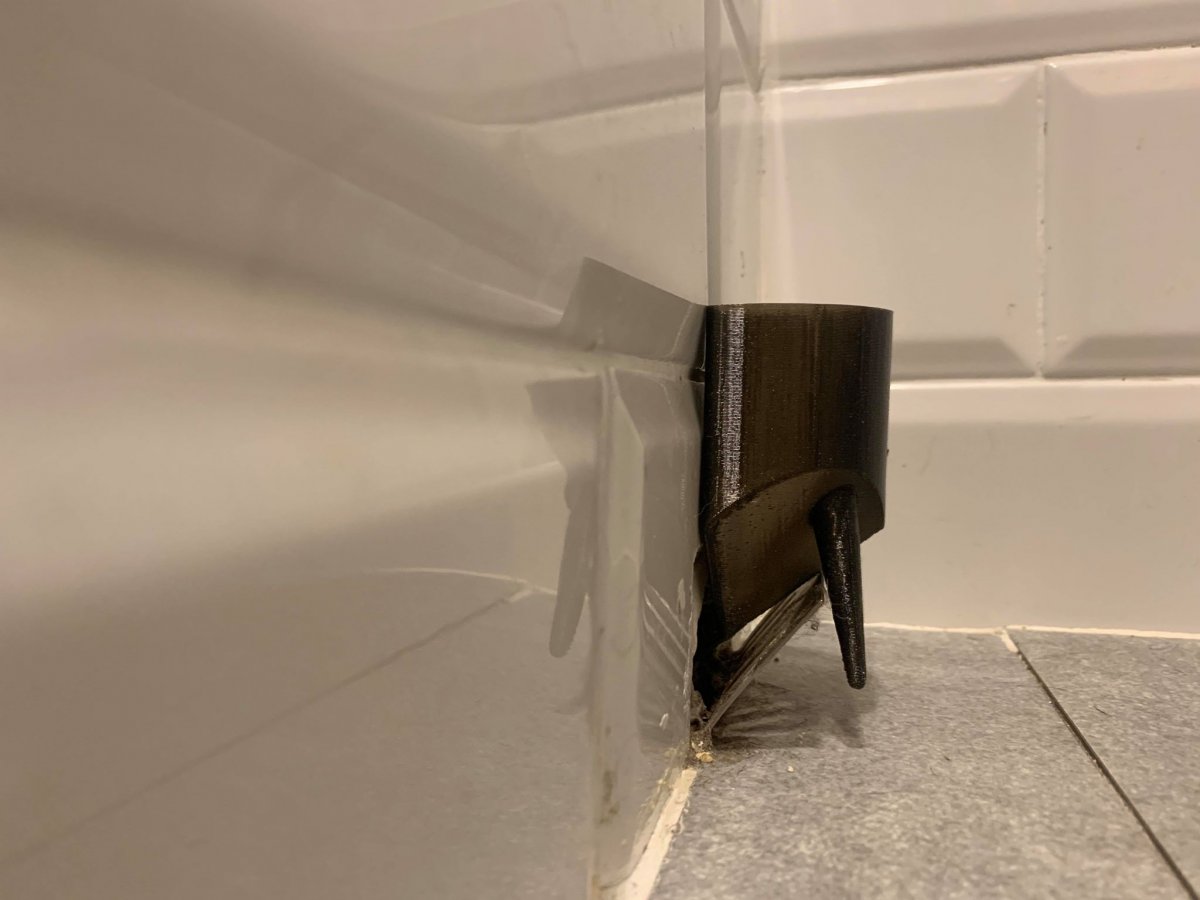
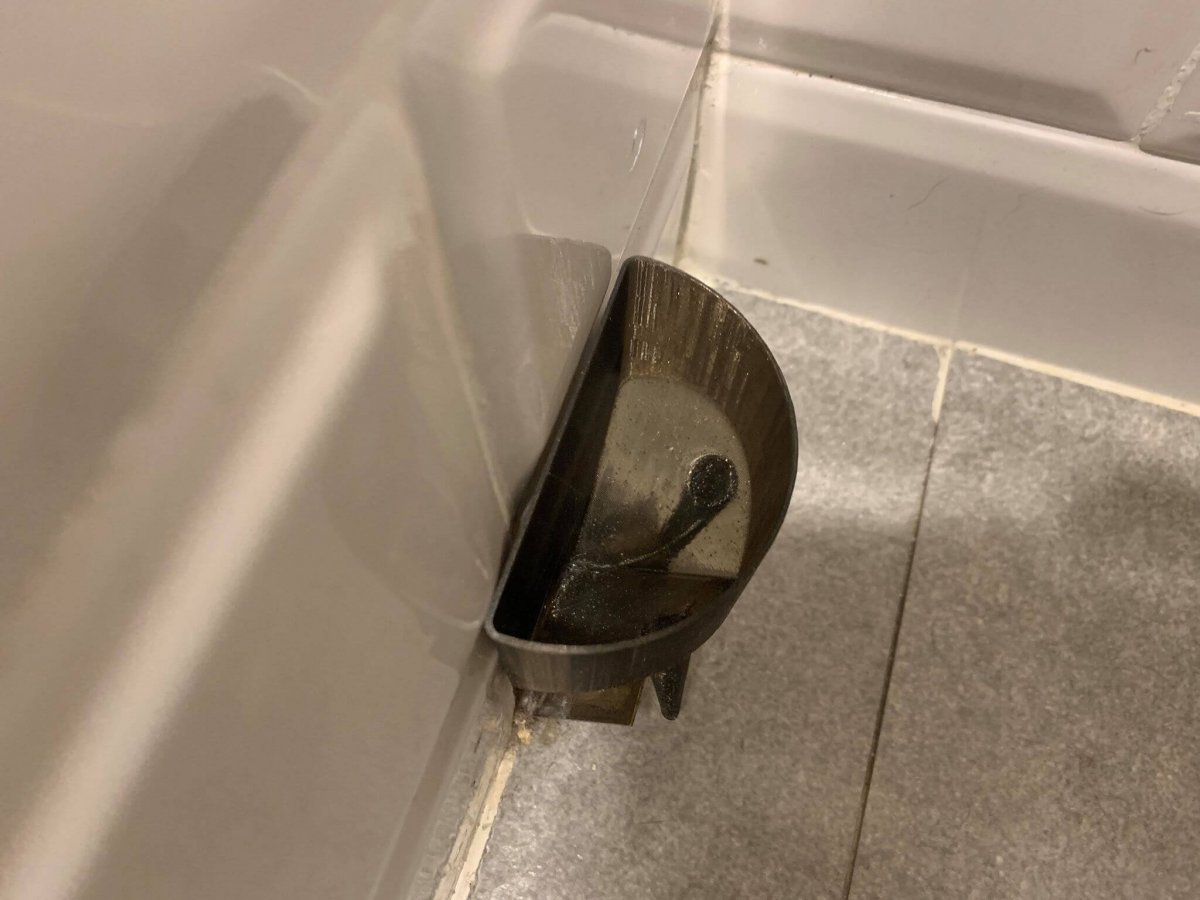
To prevent a similar crisis, the government has now advised residents to pour water down their floor drains. FabCafe Hong Kong has been 3D printing a water injector model by Phineas 3DP, which can help residents keep the U bend full of water. While others have previously shared DIY water injectors with a paper cup and straw, a 3D printed model can be placed in the drain for long-term use, without blocking the opening or making a mess.
*Subscribe to our newsletter for more stories in designs & innovation here.
FabCafe Hong Kong ideates with the local community
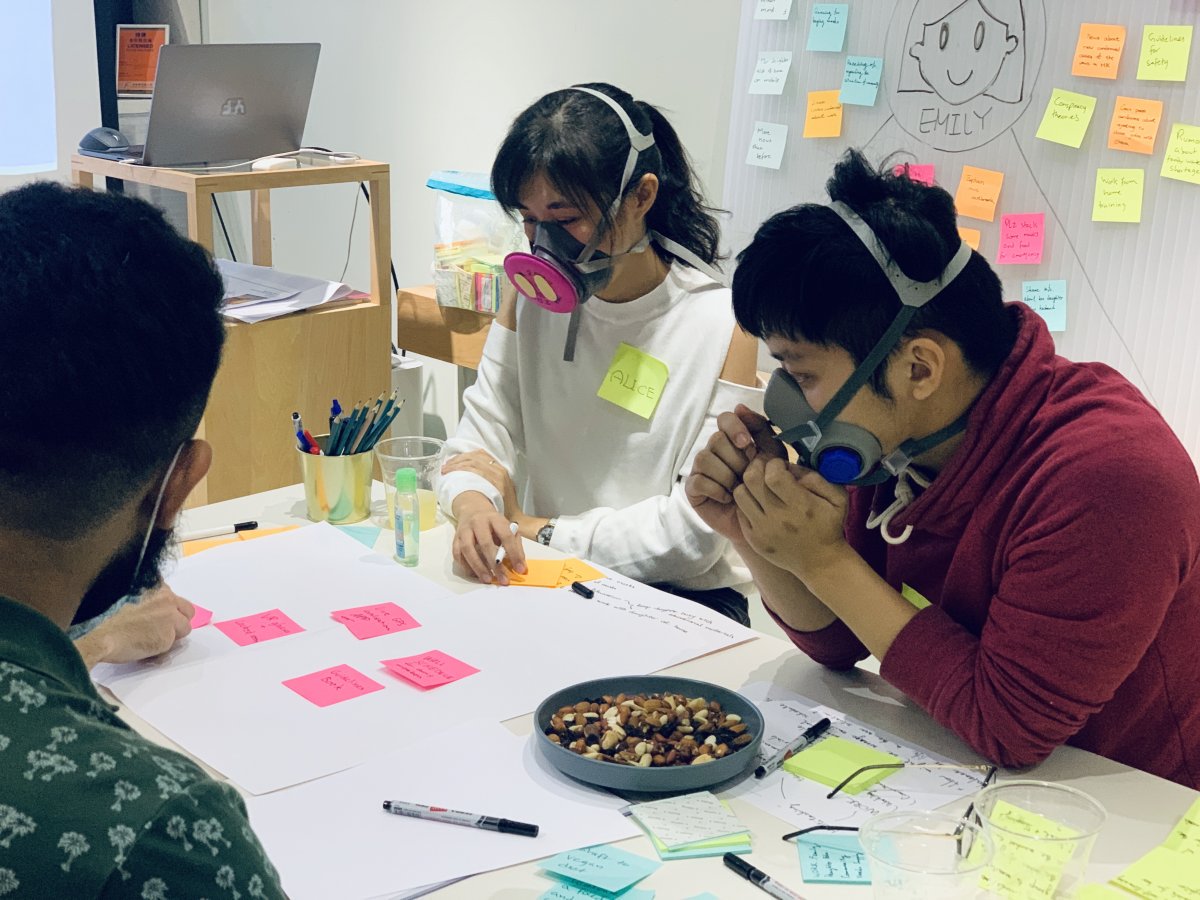
As COVID-19 continues its spread around the world, FabCafe Hong Kong held an ideation session to explore potential solutions to everyday challenges during the viral outbreak. Participants from the public were invited to join the workshop, the first in the FabCafe Hong Kong ‘FAB Ideation’ series, which aims to tackle current social and environmental issues through innovative ideas and collaboration.
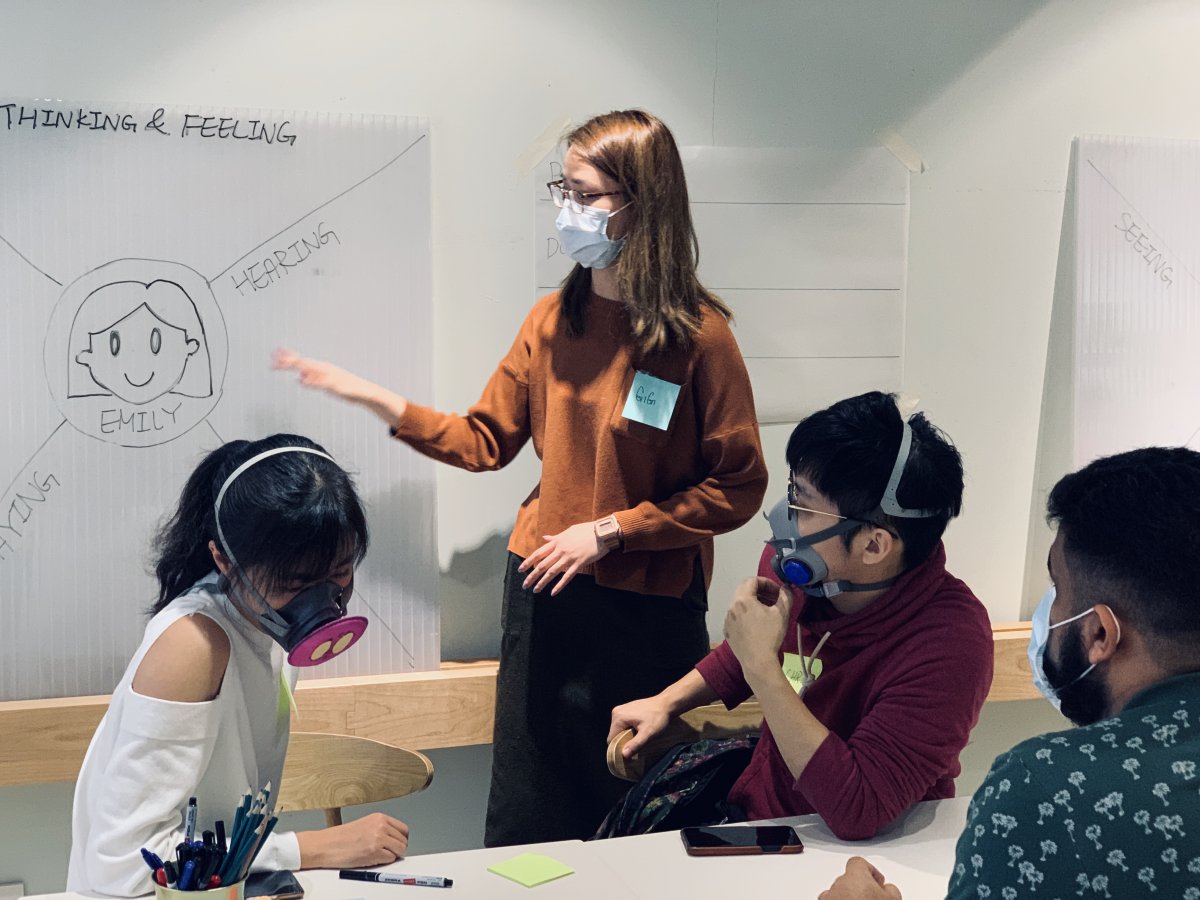
A key tenet of design thinking, empathy played a big role in the session, with participants split into two groups and tasked to relate to two ‘personas’ – a working mother and a senior citizen. Using tools such as empathy maps and ‘Day in the Life’-style user research, the two groups explored problems these personas may currently be facing, such as working mothers finding the balance between working at home and providing a healthy living and learning environment for her family, as well as the struggle to have social interactions for senior citizens.
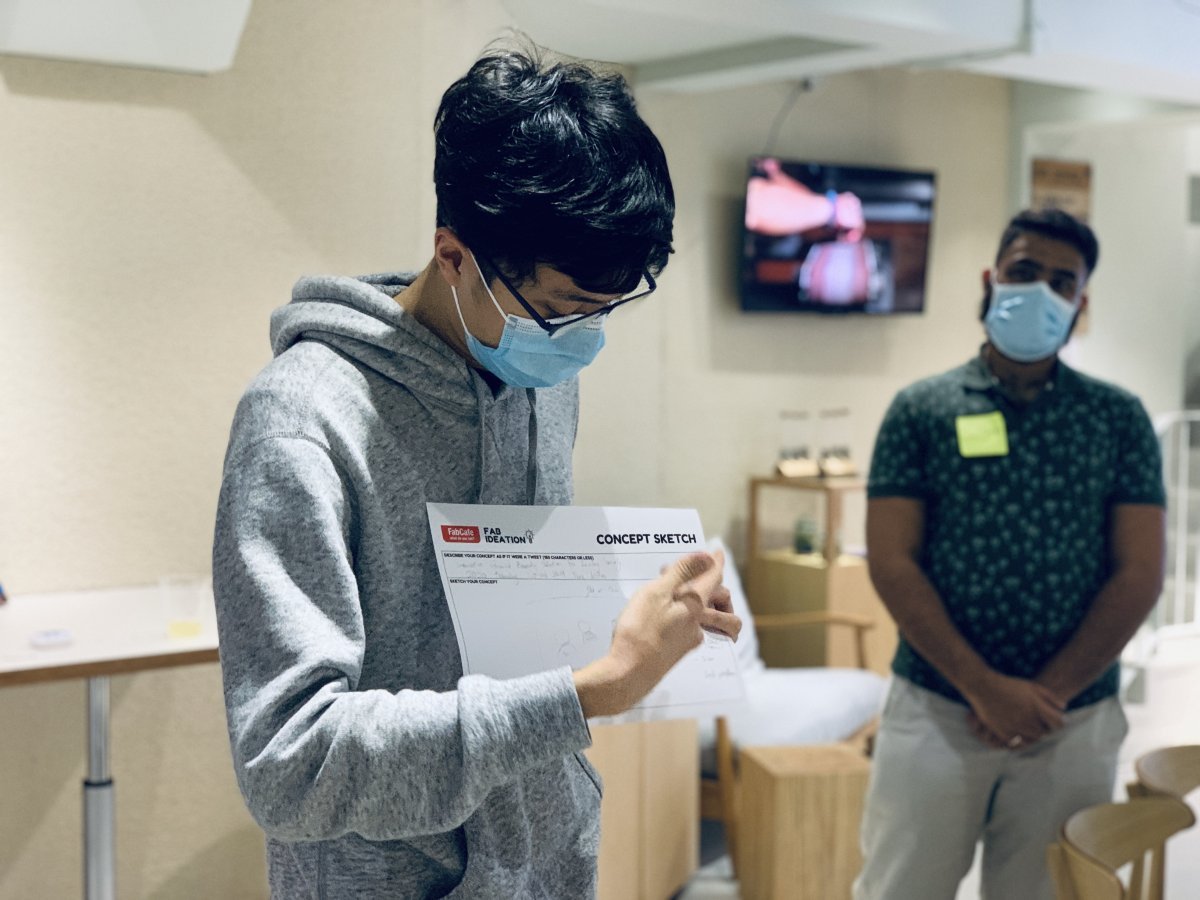
After identifying the problems, participants began to think of creative solutions, drawing their ideas as concept sketches to present to everyone. The ‘working mother’ group were able to think of ideas related to space design, online shopping and VR classrooms. Meanwhile, the most popular idea came from the ‘senior citizen’ group: a booth that allows residents in the same housing complex to share items with their own stories. Not only would this minimize face-to-face interaction between people, it could still present as an opportunity for residents to exchange contacts to make friends.
Through this ideation session, participants were able to exercise creativity and foster meaningful dialogue. In spite of the anxieties about the current climate, it was clear that collaborative efforts and empathizing with others’ contexts yielded significant results for these workshoppers.
Check out FabCafe Hong Kong for more design ideas and events.
About FabCafe HK
As one of many in Loftwork’s global chain of ‘fab’ cafés, FabCafe Hong Kong serves and fosters the local community through talks, workshops and digital fabrication services. Past events have included the Hong Kong edition of the UN Global Goals Jam and the FAB MeetUp ‘Sustainable Innovation in Hong Kong’. Located in Sheung Wan, FabCafe Hong Kong is helmed by the Loftwork HK team.
Subscribe to our newsletter for more stories in designs & innovation here.
Next Contents









